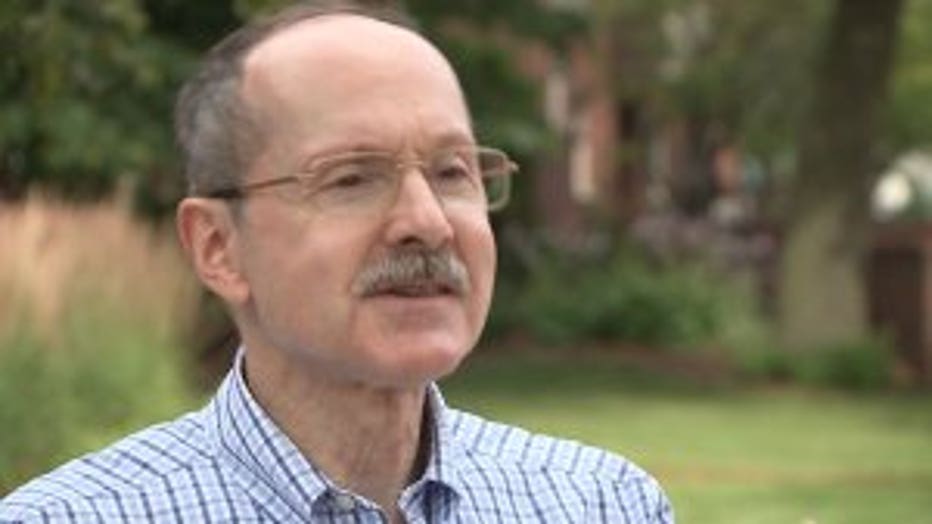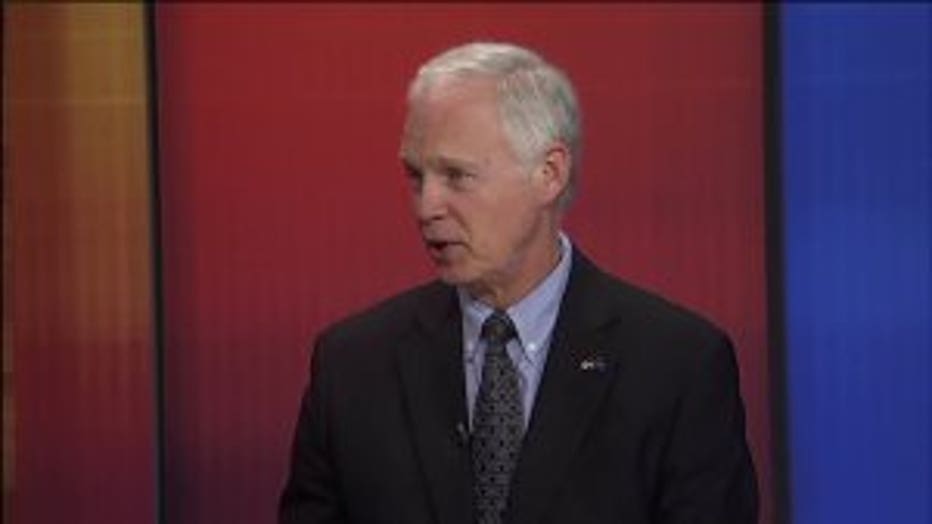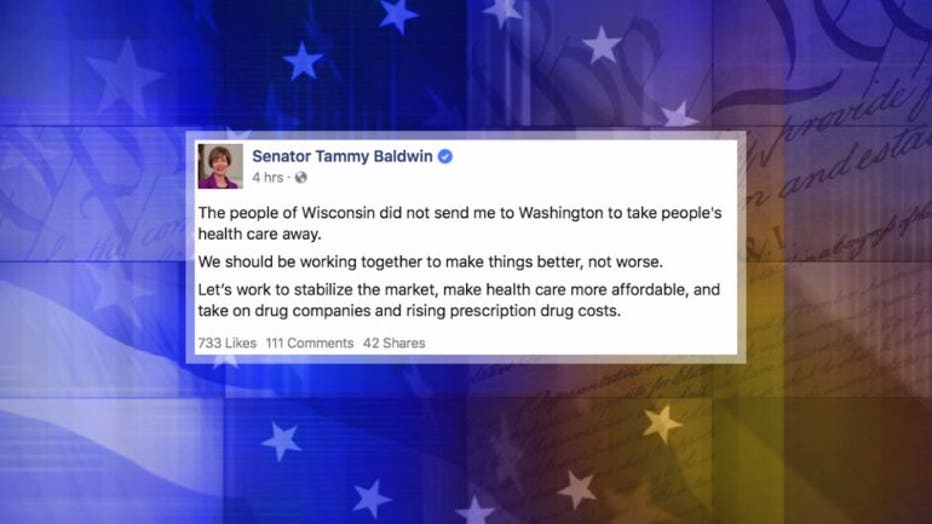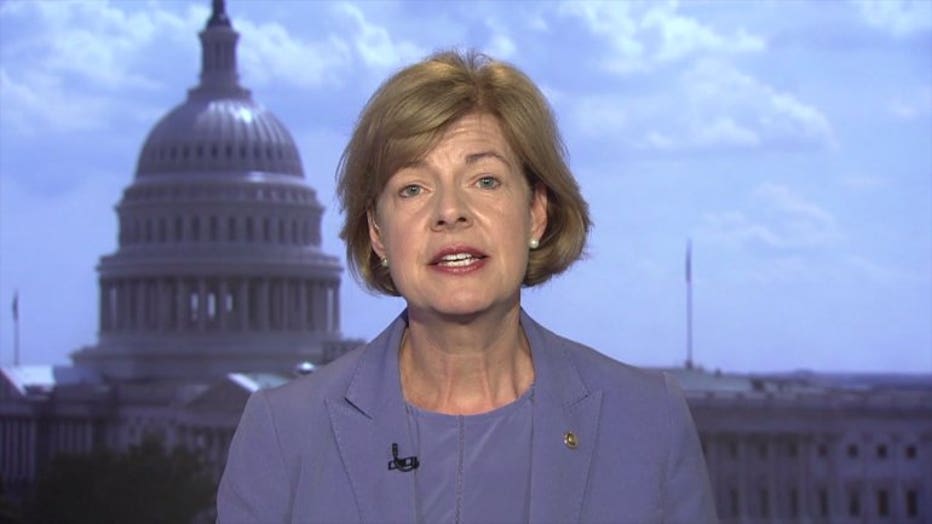"1 step closer:" After 'yes' on motion to proceed on health care, it remains unclear what bill will look like
WASHINGTON, D.C. -- Senator John McCain returned to the Capitol Tuesday, July 25th for the first time since his brain cancer diagnosis, and he voted to move toward repealing the Affordable Care Act. In total, 50 senators voted to start debate, and Wisconsin Senator Ron Johnson cast the last vote. Vice President Mike Pence broke the tie. President Donald Trump said the vote "was a big step."
It remains unclear what a final bill will look like, and there are still senators who haven't said they will back the final bill, whatever form it may take.

Mordecai Lee
"This is such a cliffhanger. I feel like we are living in a movie," Mordecai Lee, UW-Milwaukee professor said.
If the decision to move forward with the effort to repeal and replace the Affordable Care Act is a movie, what comes next will undoubtedly be a highly-anticipated sequel.
"I suspect the 50 who voted to go to debate, that some of them aren't necessarily for the bill, but they're keeping their options open. They are one step closer," Lee said.
Lee said the critical vote came from Senator Johnson, one of the last to announce his decision.

Senator Ron Johnson
"It might be confusing for people because less than a month ago, Ron Johnson said 'I'm against hurrying this up,'" Lee said.
With a 50-50 vote, it was up to VP Pence to cast the tiebreaker, meaning debate on the bill can begin.
"We obviously don't have consensus on exactly where we need to go but we have consensus to keep the process moving and I agree with that," Senator Johnson said.
Across the aisle, Democratic Senator Tammy Baldwin voted no, and posted on Facebook: "We should be working together to make things better, not worse. Let's work to stabilize the market, make health care more affordable and take on drug companies and rising prescription drug costs."

Senator Tammy Baldwin

Tammy Baldwin
Concerns are also coming from the Wisconsin Hospital Association. In a statement, officials said the bill's "outcome could actually penalize Wisconsin for the unique path we have chosen to expand health insurance coverage."

